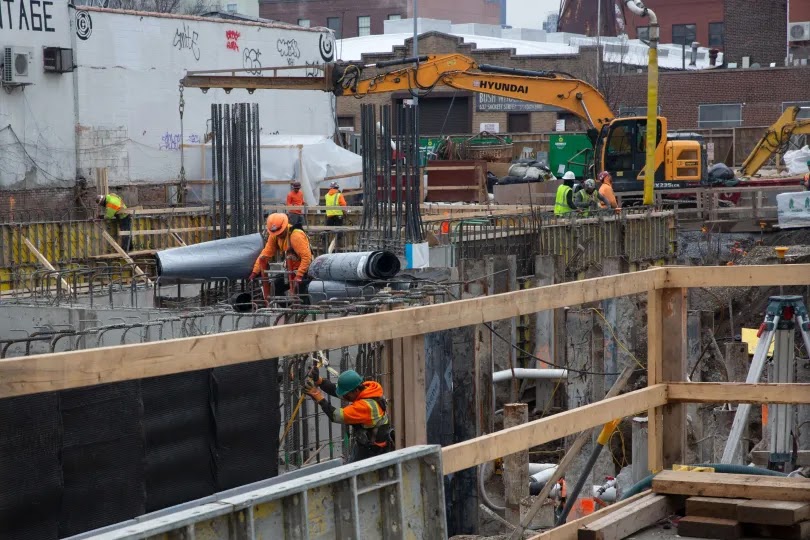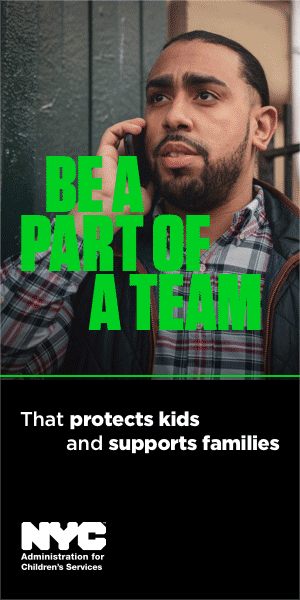By Greg David, The City
This article was originally published on by THE CITY
NEW YORK - The collapse of Gov. Kathy’s Hochul’s ambitious plan to deal with New York’s housing crisis has left pro-building advocates and those who prioritize helping tenants uncertain of what to do next.
Those who have spent the last four months lobbying Albany leaders to act on housing said it is unlikely any of the proposals would be considered in the two months remaining in this year’s legislative session. And everyone is frustrated and pointing fingers at the Assembly and state Senate.
“It was to be the year for housing, and it ended with nothing,” said Rachel Fee, executive director of the New York Housing Conference, which strongly supported the governor’s proposals.
Added Ellen Davidson, an attorney at The Legal Aid Society of New York: “I am at a loss at how our elected officials could acknowledge a crisis and do nothing.”
Rents and home prices are soaring as New York builds less new housing than it needs, lagging the rest of the country. With supply scarce, prices are such that half of city residents are rent-burdened, meaning they pay more than 30% of their income in rent. The governor set a target of building 800,000 units of housing over the next decade, which included Mayor Eric Adams’ goal of adding 500,000 new units in the city.
To achieve those aims, in January the governor unveiled a Housing Compact centered on imposing requirements on the suburbs to increase housing production, especially around transit hubs. Communities that failed to meet mandated targets would lose their right to approve projects locally, and a state oversight board would step in.
The governor also embraced the Adams administration’s agenda, which included similar housing development requirements for every community district in the five boroughs. Adams also sought state approval to lift limits on building density — the so-called FAR cap on floor area ratio — to help expand residential construction and ease the conversion of empty office buildings into residential properties. And he pursued state support to aid owners of small properties in the conversion of basements into safe and livable apartments.
Both leaders supported reviving two tax breaks to spur housing, especially the controversial 421-a incentive that expired last June, though neither seemed likely to be approved.
At the time, advocates claimed a consensus was reached that wide-reaching action was needed to increase supply in every city and town in the state.
“There is finally an alignment about why building housing of all types is required, and people are united behind the idea that supply is an issue,” said Annemarie Gray, executive director of Open New York, a pro-housing, “yes in my backyard” advocacy organization.
Advocates who put together broad coalitions like Open New York sought a deal in which Hochul’s proposals would pass alongside two measures backed by tenant groups: a proposed new state voucher system that would eventually provide $1 billion in rent subsidies and a “good cause” eviction law that would limit rent increases for apartments and the reasons a lease could not be renewed.
None of that came to pass.
Any consensus that more housing was needed was not reached in the suburbs, where opposition to housing development requirements was intense.
“The suburbs have been very clear they don’t want to be forced to do anything,” said Davidson. “It’s clear the suburban legislators are the big winner.”
/cdn.vox-cdn.com/uploads/chorus_asset/file/24350292/011022_hochul_state_of_state_1.jpg)
Hochul never developed a political strategy to deal with the suburban pushback, say those who worked on the issue but asked not to be identified to avoid angering the governor.
Meanwhile, the city’s agenda was undermined by some Manhattan Democrats who wouldn’t back efforts to increase density and who adamantly opposed tax breaks, whether to encourage affordable housing in office conversions or 421-a, a tax abatement for developers in return for the creation of income-restricted affordable housing in new buildings.
In other states that have enacted laws like the ones Hochul proposed, city and rural legislators combined to overcome suburban opposition.
Those interviewed by THE CITY on Friday could provide no suggestions on how to deal with the impasse.
“No one has a clear definitive strategy that works, and there is a lot of work to do on strategy and proposals,” said Gray. “It is clear that you need to build a bigger coalition, but we knew this was going to take a long time.”
Others are less optimistic.
“We will be thinking about how to build more support, but this is going to be tough because you are fighting against forces who don’t want any change and fighting for people who don’t have access to housing and can’t vote in those districts,” said Fee.
Development industry groups blame the legislature.
“State legislative leaders have abandoned tens of thousands of New Yorkers who need vouchers to stay in their homes, or need a new apartment, including in wealthy parts of Manhattan where new affordable rental production is virtually nonexistent,” said James Whelan, president of the Real Estate Board of New York.
Whelan noted that housing production in the city has already fallen sharply since the end of 421-a and predicted rents will continue to rise.
Tenant advocates blamed the governor for opposing a “good cause” bill — missing, they say, an opportunity to build a broader coalition Hochul would have needed to push her proposed development mandates through.
“Our understanding is that progressives were willing to negotiate on mandates in return for good cause eviction, but the governor was not willing to do so,” said Cea Weaver of Housing Justice for All, a statewide tenant advocacy group.
Agreement does exist that the crisis will continue to get worse.
“Not getting a deal in Albany impacts all of us,” Adams said Thursday night at the annual gala of the Real Estate Board of New York. “If we don’t renew 421-a we won’t build affordable housing. If we don’t raise the FAR, we can’t do what we want to do with the 10 million square feet of empty offices.”
THE CITY is an independent, nonprofit news outlet dedicated to hard-hitting reporting that serves the people of New York.










Comments
Post a Comment